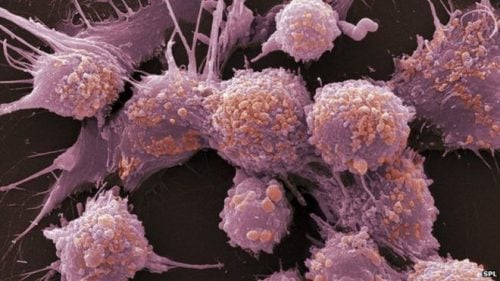A new research conducted by Swedish medical professionals has suggested that men with fertility problems are at far greater risk of prostate cancer.
The study, published in the Britsh Medical Journal, examined the records of 1.2 million pregnant women in Sweden and found that men who underwent ICSI, a treatment for infertility, had increased risk of the disease.
The researchers, who were from Lund University in Sweden, used data from the national birth and cancer registers in the country and examined reproductive health/birth records couples between 1994 and 2014.
Ninety seven percent of the babies were conceived naturally and 1.7 percent came through with IVF, a procedure where an egg is fertilized by sperm in a test tube or outside the body.
The study added that 1.3 percent of the births resulted from ICSI, which involves the direct injection of sperm into eggs obtained from IVF.
However, 0.28 percent of those who conceived naturally were diagnosed with prostate cancer unlike 0.37 percent in the IVF group and 0.42 percent among those who had ICSI.
More disturbing was that men who constituted the ICSI group reported a higher risk of developing early-onset of prostate cancer before they attained the age of 55.
Speaking on the findings, Allan Pacey, a professor of andrology at the University of Sheffield, UK, stated that findings should be as a sort of warning that foretells the prospects of men’s reproductive health.
“Male infertility might serve as an advanced warning which both men and their doctors should be better attuned to. It’s important to be clear that this isn’t because the techniques of assisted reproduction go on to cause prostate cancer, but probably because the two have a common cause,” he said.
“Perhaps men who are diagnosed with fertility problems in their 20s and 30s should be given a leaflet explaining what this might mean for them in their 50s and 60s. This is so they can be aware of possible future problems, and be encouraged to visit their GP a bit quicker than they often do.”
While those who reported a higher risk of prostate cancer were “quite small and very young,” Simon Grieveson of the Prostate Cancer UK said the study must adopt a broader age range before reaching a definite conclusion.
“Prostate cancer is common in men over 50. Those involved were younger on average and, therefore, already have a low risk of prostate cancer. This study would need to look at a broader age range to fully understand whether men who undergo fertility treatment actually have a higher risk overall,” he said.
“More research would need to be done to determine the underlying cause. We believe it’s important that all men are aware of the risks of prostate cancer. Men concerned about the disease should speak to their GP. However, couples considering fertility treatment should not be put off by these results.”
Copyright 2024 TheCable. All rights reserved. This material, and other digital content on this website, may not be reproduced, published, broadcast, rewritten or redistributed in whole or in part without prior express written permission from TheCable.
Follow us on twitter @Thecablestyle

